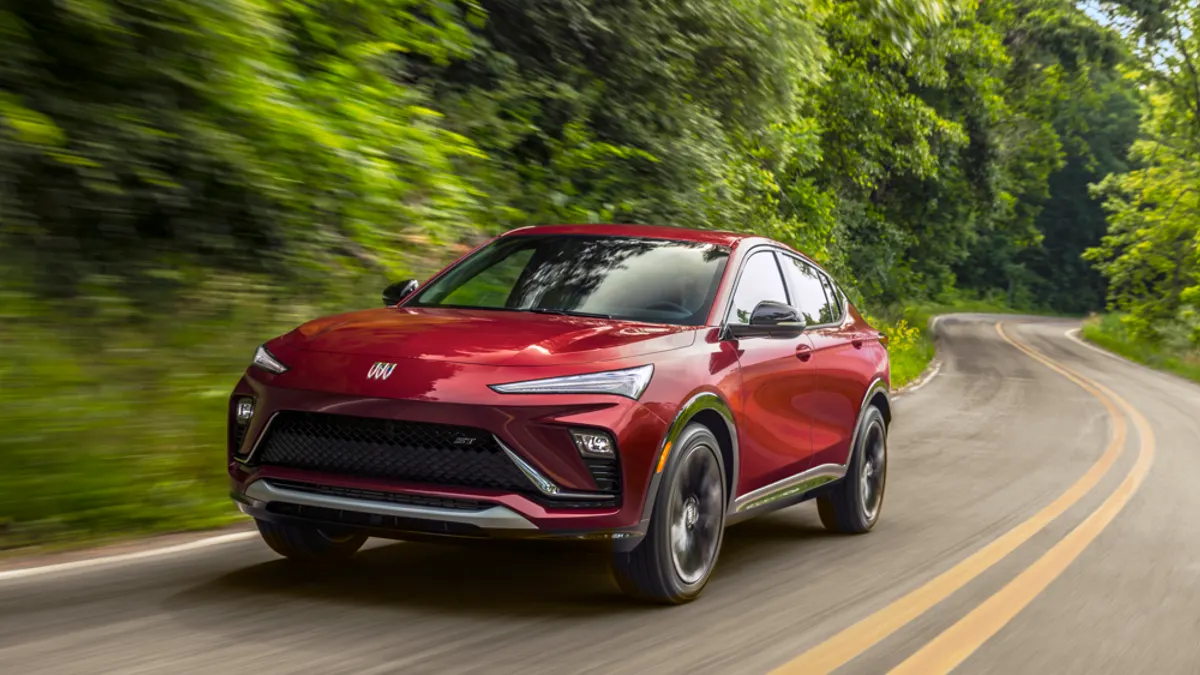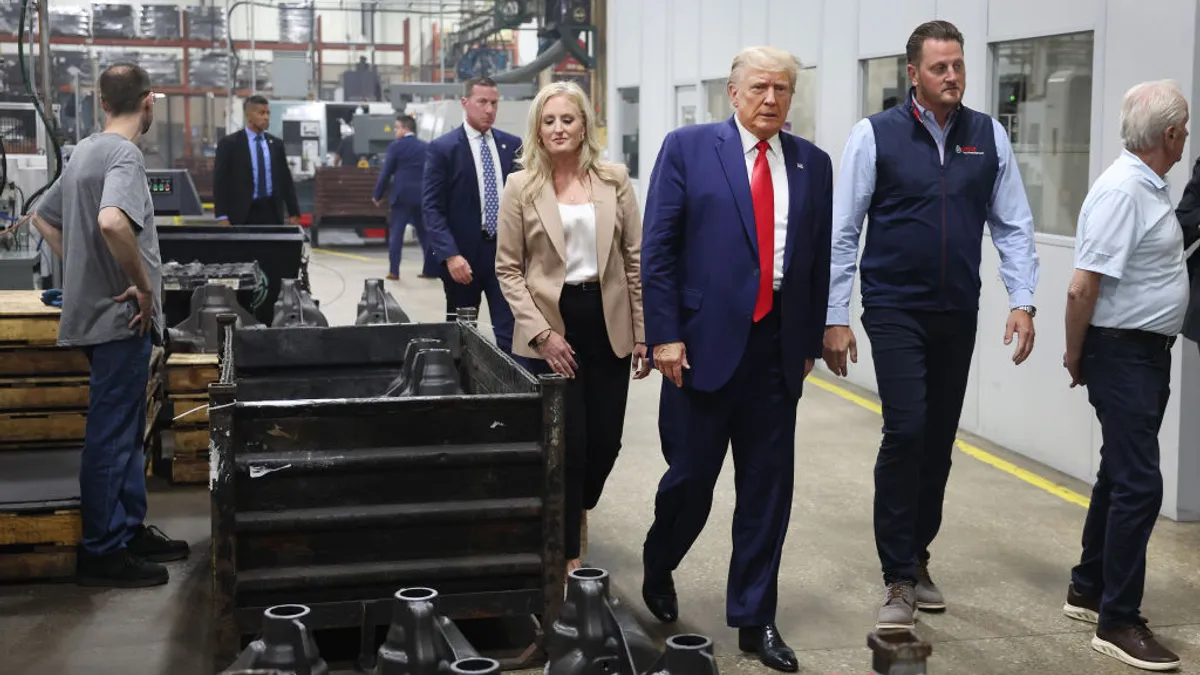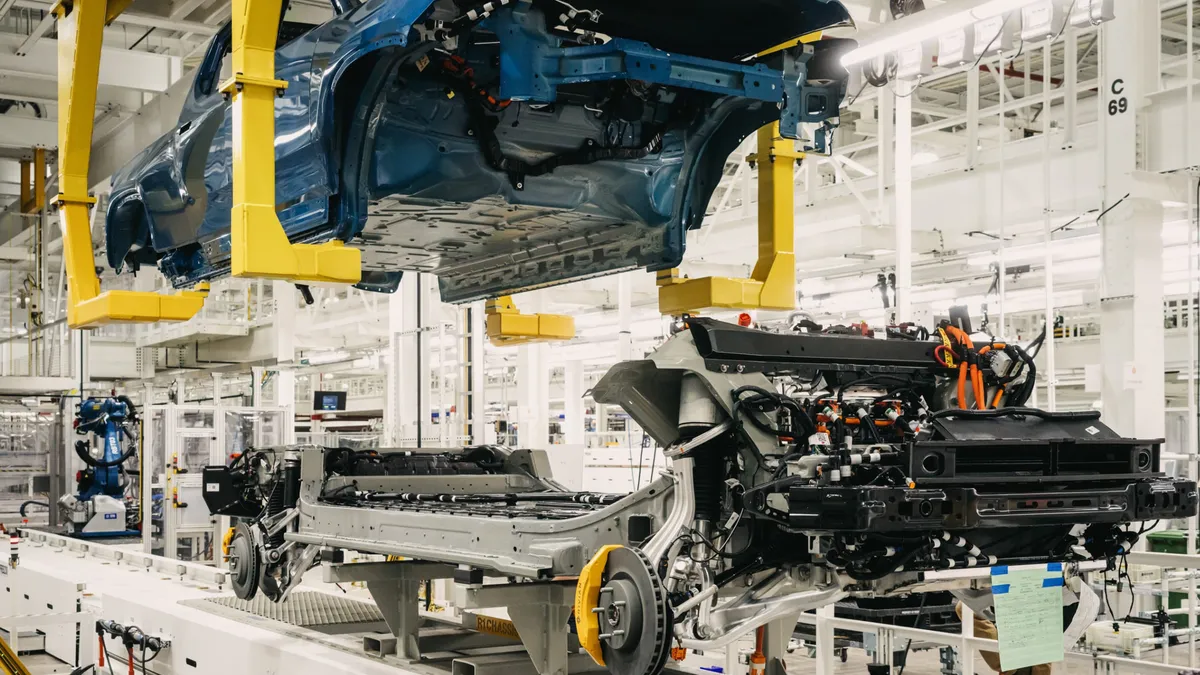General Motors beats Wall Street analysts’ forecasts on revenues and earnings in the first quarter, but the automaker is suspending both its guidance for investors as well as its planned $4 billion in share buybacks for the remainder of the year because of uncertainty around President Trump’s tariff policies.
GM posted Q1 earnings per share (EPS) of $2.78, surpassing analyst expectations of $2.61. Profits were $2.8 billion, down 6.6% from the year-ago level. Revenue for the period came in at $44.02 billion, ahead of the $43.26 billion expected by analysts.
Adjusted EBIT came in at $3.49 billion, down 9.8% year-over-year but slightly above the expected $3.45 billion. Adjusted automotive free cash flow totaled $811 million, a 26% decline from a year ago and below the forecast of $833.9 million.
One of the headwinds on profits, says CFO Paul Jacobson, was a fire at a key supplier that limited production of more profitable SUVs in Q1.
Lack of guidance for the rest of the year highlights how Trump’s trade measures are disrupting corporate planning across American industries.
“Because the original guidance didn’t include impact from tariffs, prior guidance can’t be relied upon,” Jacobson says on a call with reporters. “We will update when we have more information on tariffs."
News reports were circulating Monday that Trump may substantially reduce tariffs on the auto sector. GM postponed its guidance call with Wall Street until Thursday when it believes the picture around tariffs may be clearer.
"We believe the future impacts of tariffs could be significant," says Jacobson, adding that the company was engaged in "productive conversations" with the Trump Admin., which is pressing companies to build more autos in the U.S.
The administration's 25% tariffs on car imports mean higher costs for GM vehicles assembled in Mexico, South Korea and other countries.
However, on Tuesday, Trump amended a previous executive order to provide some relief to automakers. The updated order calls for limited cost offsets for companies that assemble vehicles in the U.S. on a portion of a 25% tariff on auto parts set to begin May 3.
The 25% tariffs on imported vehicles and auto parts, introduced in April, are projected to cost U.S. automakers approximately $108 billion this year, according to the Center for Auto Research(CAR). For the Detroit Three – GM, Ford, and Stellantis – this translates to an estimated $42 billion in additional costs, the research institution says. On average, these tariffs could add about $4,911 per vehicle in parts costs and $8,641 for fully imported vehicles.













